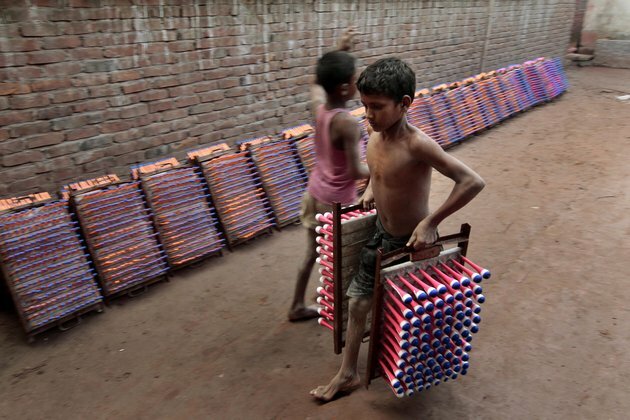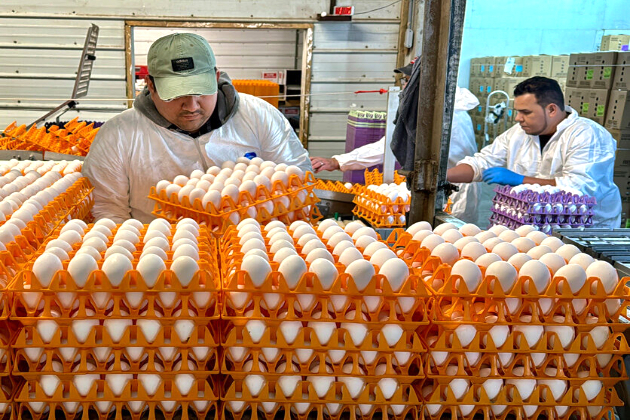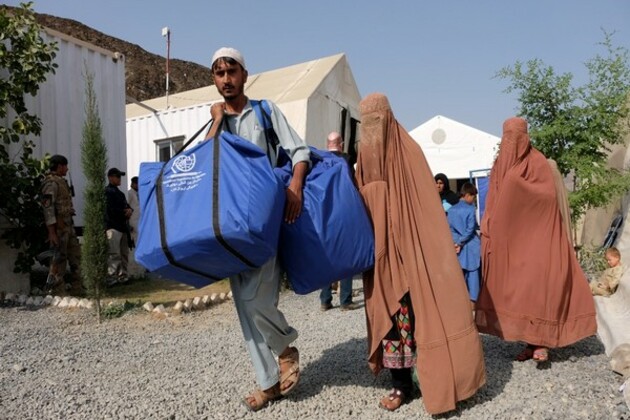The end of dangerous working conditions starts with informed consumers
The Conversation
07 Nov 2019, 04:01 GMT+10

Halloween has just passed and your kids are probably still polishing off this year's candy haul. As recently reported in the Washington Post, there's a good chance that some of those chocolate treats were made using child labour. Would knowing that change your mind about purchasing that product?
What about reports of beatings and abuse of Bangladeshi textile workers sewing clothes destined for our closets? Should companies that produce goods responsibly be identified? How can consumers make the right choices?
Work causes more than 2.1 million deaths globally every year, whether it's due to the child labour used in the production of cacao or electronics, or contract food preparation workers dying on the job in Canada. The costs of work-related injuries account for about four per cent of the total world GDP.
In fact, studies have shown that the costs of workplace injuries are on par with those of all cancers combined. A survey of more than 5,000 workers in Quebec has found that one in five are suffering from work-related musculoskeletal pain, particularly shoulder and back pain, with women being affected in greater numbers than men.
Workplace injuries also erode companies' profits. And this doesn't begin to address the cost of mental health issues associated with work. Working environments should not cause pain and injury in employees - it's bad for business.
Consumers also to blame
Bad work environments, and their associated burnout, injury, pain and fatalities, plague workplaces around the world. While it's tempting to blame companies for egregious working situations, consumers should also look in the mirror.
Companies will provide you with goods according to your demands. If you don't demand products made under good working conditions, then the all-too-common status quo - dangerous, dirty and demeaning conditions - is what you are supporting with your purchases.
Our research has shown that consumers, when asked, would prefer goods made in favourable working environments. When we interviewed millennials, they expressed a willingness to pay 17.5 per cent more on a $100 product for goods made under healthy conditions than those that are not. The main barrier noted in this research is access to trustworthy information about the working environments in production.
When we examined how 100 companies listed on the Toronto Stock Exchange are currently reporting on their working environments, we find almost 900 different indicators reported, with almost no organizations using the same indicators in their reports. This makes it virtually impossible for a responsible consumer, or a company seeking a responsible supplier, to compare practices and make informed choices. A standard for reporting is needed.
Read more: Governments know work and living conditions can kill us -- it's time to act
Recently the Canadian Standards Association has begun to lay the groundwork needed to create a standard providing advice and guidance to help companies report on their working environments in a consistent and comparable manner.
When you consider the complexity of characterizing all of the physical, mental, environmental and social dimensions of a workplace, it's clear that creating a consistent reporting approach remains a challenge. Further work is needed.
Demonizing not enough
Demonizing companies with poor working conditions and operational practices is not enough. We also need to support companies with good track records and work to foster favourable environments in our own workplaces. For companies trying to communicate the quality of their workplaces, there is a need for clear guidance of what and how to report.
Without good reporting, consumers won't trust companies, and the potential for consumers to become socially responsible disappears. Furthermore, a reporting standard would give companies with stellar workplaces a credible means to demonstrate their leadership to clients and customers.
There is a growing awareness that we, as consumers, can influence broad issues like climate change just by making smarter choices about where we spend our money. This is equally true for the working conditions of the people who produce our food and manufacture our products.
But we have not yet reached the tipping point of public opinion - and employees around the world are still literally dying for a paycheque.
Work shouldn't hurt. The food we eat and the products we use should not be made in pain or contribute to human misery. While companies hold some blame, so do consumers who wilfully avoid dealing with the consequences of their purchasing decisions.
Access to reliable information on working conditions needs standardized reporting, and Canada is well-positioned to show leadership on this issue.
Without clear reporting, how are we to know about the conditions our food and goods are made in? Let's make sure the chocolate we buy leaves no bitter aftertaste.
[ You're smart and curious about the world. So are The Conversation's authors and editors. You can read us daily by subscribing to our newsletter. ]
Authors: Patrick Neumann - Professor, Department of Mechanical and Industrial Engineering, Ryerson University | Cory Searcy - Professor & Interim Vice-Provost and Dean of Graduate Studies, Ryerson University 
 Share
Share
 Tweet
Tweet
 Share
Share
 Flip
Flip
 Email
Email
Watch latest videos
Subscribe and Follow
Get a daily dose of Afghanistan Sun news through our daily email, its complimentary and keeps you fully up to date with world and business news as well.
News RELEASES
Publish news of your business, community or sports group, personnel appointments, major event and more by submitting a news release to Afghanistan Sun.
More InformationInternational
SectionApple likely to escape EU fine after browser changes
BRUSSELS, Belgium: Apple appears to have dodged a major regulatory setback in Europe, following recent changes to how users select...
FBI probing increased violence against Tesla
WASHINGTON, D.C: FBI Director Kash Patel said this week the bureau was probing what he called the increase in violent activity toward...
Alarm over nine Red Cross personnel going missing in Gaza
GAZA - Israel is refusing to allow search parties to access an area where 9 Red Cross ambulance crew members have gone missing in Gaza....
Georgia jury hits Bayer with $2.1 billion verdict over roundup claims
NEW YORK CITY, New York: A jury in Georgia has ordered Bayer, the parent company of Monsanto, to pay nearly US$2.1 billion to a man...
World mobilizes assistance for quake-hit Myanmar
The death toll in Friday's massive earthquake in Myanmar has risen to 1,644, and is expected to rise significantly. At least another...
US boosts egg imports from Brazil amid bird flu spread
WASHINGTON, D.C.: In response to soaring egg prices and supply shortages driven by a devastating bird flu outbreak, the United States...
Central Asia
SectionChineseToday | Ethnic charm of young dancer glows on the stage of Pamir Plateau
(250330) -- TAXKORGAN, March 30, 2025 (Xinhua) -- Amangul Wapik and her colleagues rehearse for a performance in Tiznap Town of Taxkorgan...
AFGHANISTAN-KABUL-EID AL-FITR-PRAYER
(250330) -- KABUL, March 30, 2025 (Xinhua) -- People embrace each other to celebrate Eid al-Fitr in Kabul, Afghanistan on March 30,...
Pakistan finalises plans to detain, deport Afghan migrants as deadline approaches
Islamabad [Pakistan], March 30 (ANI): The Pakistani government has finalised its plans to detain and deport Afghan citizens as the...
(SP)SINGAPORE-BASKETBALL-FIBA ASIA CUP 3X3-MEN-MONGOLIA VS AUSTRALIA
(250330) -- SINGAPORE, March 30, 2025 (Xinhua) -- Lachlan John Barker (L) of Australia breaks through during the FIBA 3x3 Basketball...
"I'm glad you're the President": US citizen Hall thanks Trump after being freed from Taliban
Washington DC [US], March 30 (ANI): American citizen Faye Hall, who was recently freed from Taliban captivity, expressed her heartfelt...
American Woman Faye Hall freed from Taliban custody in Afghanistan
Washington, DC [US], March 30 (ANI): Faye Hall, an American woman detained by the Taliban in Afghanistan since February, has been released...













